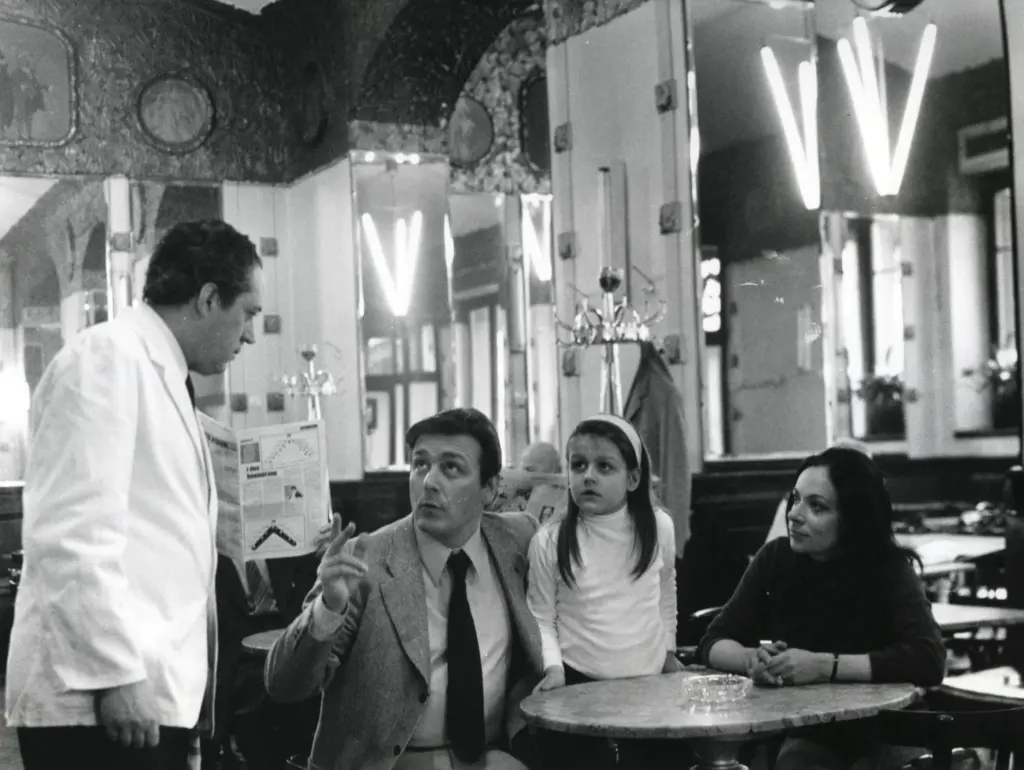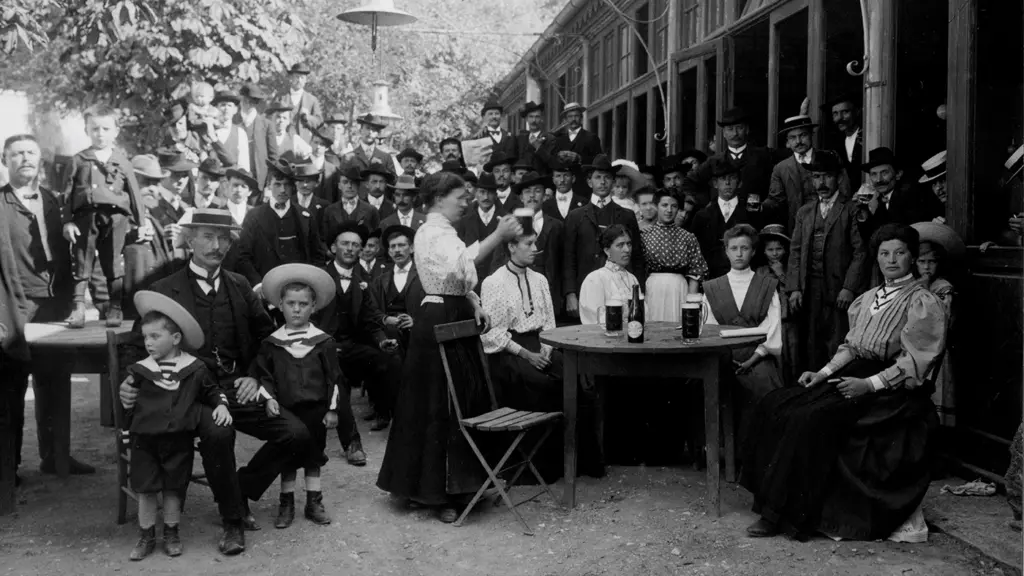Caffè degli Specchi, 1960 ca. – coll. Fototeca CMSA – ph. Ugo Borsatti
Vienna on sea
The tradition of cafès as meeting, work and meditation places, typical of Central Europe
Celebrated by Saba with its original name the Caffè dei negozianti, or Shopkeepers’ Café, the Tommaseo is the oldest café in the city, named in 1848 after the Dalmatian man of letters who wrote the first dictionary of the Italian language, and of which it preserves some handwritten pieces. Svevo, Saba, Quarantotti Gambini, Voghera, Giotti, Bazlen and Stuparich gathered at the Caffè Garibaldi, in Piazza dell’Unità, while Joyce frequented the Pirona Pastry Shop to enjoy his presnitz and the Stella Polare, near the Berlitz School where he worked.
The Buffet da Pepi, known as “Pepi s’ciavo” – a derogatory term for “Slavic” – is mentioned by Fulvio Tomizza in Gli sposi di via Rossetti (1986), which tells the tragic story of Danica Tomažič, the daughter of the owner, and in which the writer Boris Pahor also appears as a character. The Da Libero hostelry, in via Risorta, was celebrated by Claudio Magris on the pages of the “Corriere della Sera” as the hostelry of the Santo Bevitore (“Holy Drinker”), imagining it was frequented by Joyce.

“The San Marco is a true café, a periphery of history marked by the conservative loyalty and liberal pluralism of its patrons. Pseudo-cafés are those in which a single tribe camps, it matters not if they are made up of well-to-do ladies, young men with high hopes, alternative groups or up-to-date intellectuals. All endogamy is asphyxiating; even that of colleges, university campuses, exclusive clubs, pilot classes, political meetings and cultural symposiums are the denial of life, which is a seaport.”
Claudio Magris, Microcosmi (1977)


